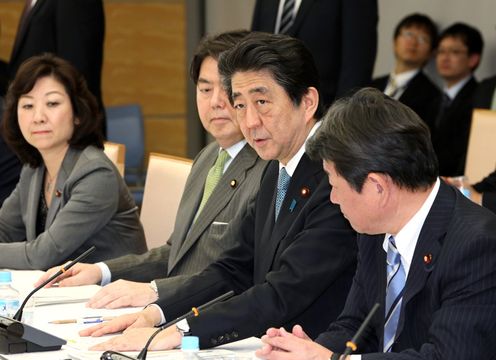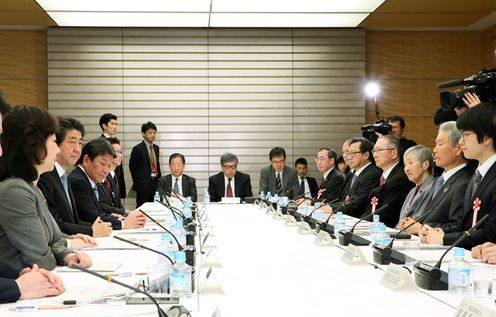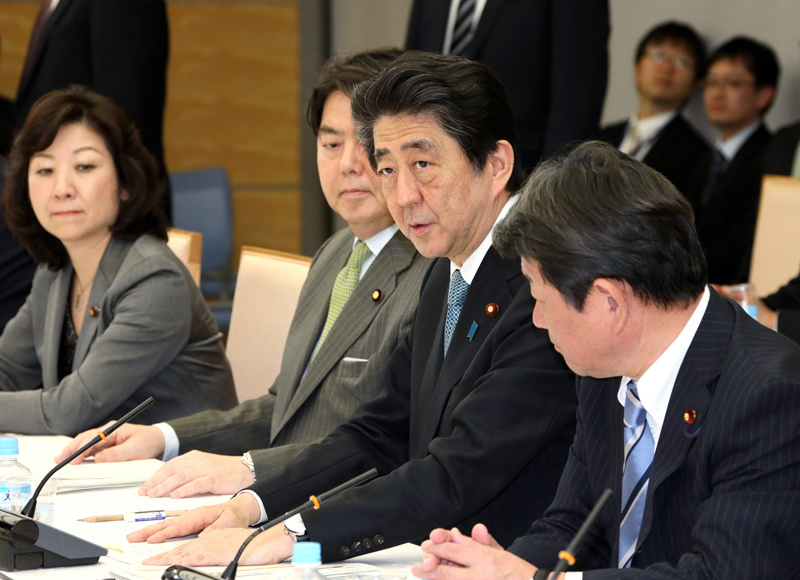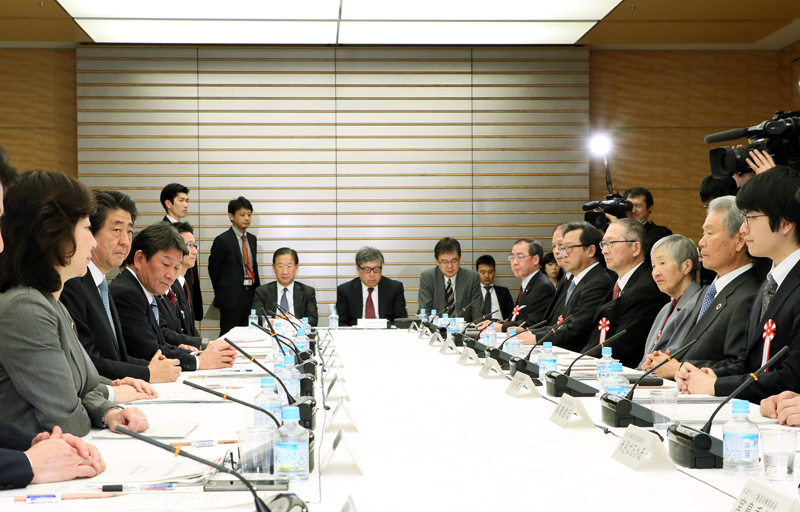Home > News > The Prime Minister in Action > March 2018 > Council for Designing 100-Year Life Society
The Prime Minister in Action
Council for Designing 100-Year Life Society
March 23, 2018

Photograph of the Prime Minister making a statement (1)

Photograph of the Prime Minister making a statement (2)
[Provisional Translation]
On March 23, 2018, Prime Minister Shinzo Abe held the 6th meeting of the Council for Designing 100-Year Life Society at the Prime Minister’s Office.
At the meeting, a debate took place on recurrent education (continuing education).
Based on the discussion, the Prime Minister said,
“Today we had a debate on recurrent education. Recurrent education will be key to the promotion of the productivity revolution as well as the human resources revolution.
We must create a society in which people can improve or change their careers by enhancing their work skills though enrollment in recurrent education.
In order to promote recurrent education, we will ensure that workers have more time outside of work and greatly enhance programs to reduce the burden of their enrollment. Meanwhile, there were some comments that if we are going to enhance those programs, we must improve the quality of these courses and make sure that they are worthy of such assistance programs.
It is also essential that we not only train instructors with work experience in their designated fields, but also have companies participating in program planning and internship opportunities, among other initiatives, so as to enhance the practicality of curricula. In this regard, I would like to request the full support of the business community for these initiatives.
Furthermore, we must promote the diversification of recruiting practices at each company in order to ensure that the people who enroll in recurrent education have a chance to succeed in the workplace. One idea that was proposed today is to create a council inviting publicly-listed companies that are actively providing mid-career employment opportunities. I want each of the relevant ministries and agencies to develop concrete ideas for increasing mid-career employment.
In addition, universities and other educational institutions need to provide integrated support covering employment as well as education and training. I ask these institutions to provide a diverse range of options that meet the needs of workers, such as night classes, weekend classes, and online courses, and expand the number of people enrolling.
The importance of recurrent education does not apply only to women who are raising children. Recurrent education for researchers and engineers is also another major issue to deal with. We will promote the development of programs in collaboration with academic societies in fields such as information processing, biology, and chemistry.
As work styles change, there is a limit to human resources development by companies’ in-house education and training. Educational institutions, the business community, and governments will work in collaboration to promote recurrent education.
We will advance various discussions, including the enhancement of education training subsidy programs, the creation of recurrent education programs through industry-academia collaborations, the expansion of mid-career employment opportunities in the private sector, and recurrent education for engineers toward this summer when we formulate the blueprint of the policy.
I would like the relevant ministers, including Minister Motegi, Minister Kato, Minister Hayashi, and Minister Seko, to take the necessary actions, based on the comments made by the members of this Council today.”


